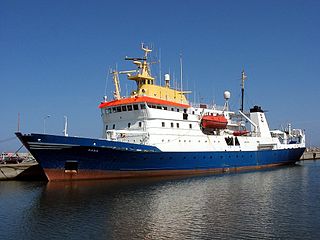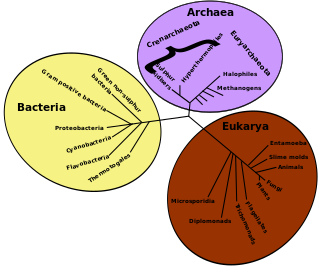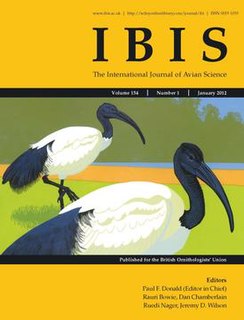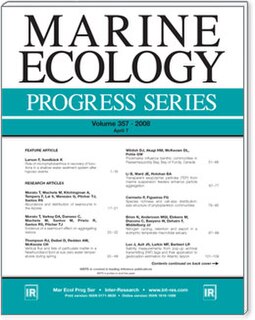Human biology is an interdisciplinary area of study that examines humans through the influences and interplay of many diverse fields such as genetics, evolution, physiology, anatomy, epidemiology, anthropology, ecology, nutrition, population genetics, and sociocultural influences. It is closely related to the biomedical sciences, biological anthropology and other biological fields tying in various aspects of human functionality. It wasn't until the 20th century when biogerontologist, Raymond Pearl, founder of the journal Human Biology, phrased the term "human biology" in a way to describe a separate subsection apart from biology.

Fisheries science is the academic discipline of managing and understanding fisheries. It is a multidisciplinary science, which draws on the disciplines of limnology, oceanography, freshwater biology, marine biology, meteorology, conservation, ecology, population dynamics, economics and management to attempt to provide an integrated picture of fisheries. In some cases new disciplines have emerged, as in the case of bioeconomics and fisheries law.

Evolutionary ecology lies at the intersection of ecology and evolutionary biology. It approaches the study of ecology in a way that explicitly considers the evolutionary histories of species and the interactions between them. Conversely, it can be seen as an approach to the study of evolution that incorporates an understanding of the interactions between the species under consideration. The main subfields of evolutionary ecology are life history evolution, sociobiology, the evolution of inter specific relations and the evolution of biodiversity and of communities.
The Journal of Ecology is a bimonthly peer-reviewed scientific journal covering all aspects of the ecology of plants. It was established in 1913 and is published by Wiley-Blackwell on behalf of the British Ecological Society.
The British Ecological Society is a learned society in the field of ecology that was founded in 1913. It is the oldest ecological society in the world. The Society's original objective was "to promote and foster the study of Ecology in its widest sense" and this remains the central theme guiding its activities today. The Society has almost 5000 members of which 14% are students. It has always had an international membership and currently 42% are outside the United Kingdom, in a total of 92 countries. The head office is located in London.
Oikos is a monthly peer-reviewed scientific journal covering research in the field of ecology. It is published by Wiley-Blackwell on behalf of the Nordic Foundation Oikos. Since 2011, the editor-in-chief has been Dries Bonte of Ghent University.

Ibis, subtitled the International Journal of Avian Science, is the peer-reviewed scientific journal of the British Ornithologists' Union. It was established in 1859. Topics covered include ecology, conservation, behaviour, palaeontology, and taxonomy of birds. The editor-in-chief is Dominic J. McCafferty. The journal is published by Wiley-Blackwell in print and online. It is available free on the internet for institutions in the developing world through the OARE scheme.

Ecology Letters is a monthly peer-reviewed scientific journal published by Wiley-Blackwell and the French National Centre for Scientific Research. Tim Coulson took over as editor-in-chief from Marcel Holyoak in 2015. The journal covers research on all aspects of ecology.

Austral Ecology: A Journal of Ecology in the Southern Hemisphere is a peer-reviewed scientific journal covering research related to the ecology of land, marine, and freshwater systems in the Southern Hemisphere. It is published by Wiley and is the official journal of the Ecological Society of Australia. The journal addresses the commonality between ecosystems in Australia and many parts of southern Africa, South America, New Zealand, and Oceania. For example, many species in the unique biotas of these regions share common Gondwana ancestors. The journal was established in 1976 as Australian Journal of Ecology, obtaining its current name in 2000. As of 2017, the editor-in-chief is Nigel Andrew.

Conservation Biology is a bimonthly peer-reviewed scientific journal of the Society for Conservation Biology, published by Wiley-Blackwell and established in May 1987. It covers the science and practice of conserving Earth's biological diversity, including issues concerning any of the Earth's ecosystems or regions. The editor-in-chief is Mark Burgman.

(John) Philip Grime is an ecologist and emeritus professor at the University of Sheffield. He is best known for his Universal adaptive strategy theory, for the unimodal relationship between species richness and site productivity, for the Intermediate Disturbance Hypothesis, for the DST classification and, with Simon Pierce, universal adaptive strategy theory (UAST) and the twin filter model of community assembly and eco-evolutionary dynamics.

Ecography is a bimonthly peer-reviewed scientific journal published by Wiley-Blackwell on behalf of the Nordic Society Oikos covering the field of spatial ecology. It has been published since 1978, the first 14 volumes under the name Holarctic Ecology.

Molecular Ecology is a twice monthly scientific journal covering investigations that use molecular genetic techniques to address questions in ecology, evolution, behavior, and conservation. Molecular Ecology is published by Wiley-Blackwell.

Environmental social science is the broad, transdisciplinary study of interrelations between humans and the natural environment. Environmental social scientists work within and between the fields of anthropology, communication studies, economics, geography, history, political science, psychology, and sociology; and also in the interdisciplinary fields of environmental studies, human ecology and political ecology, social epidemiology, among others.

Functional Ecology is a monthly peer-reviewed scientific journal covering physiological, behavioural, and evolutionary ecology, as well as ecosystems and community ecology, emphasizing an integrative approach.

The Journal of Animal Ecology is a peer-reviewed scientific journal publishing research in all areas of animal ecology. It began publication in 1932, and as such is the second oldest journal of the British Ecological Society. It is available both in print and online.
Journal of Applied Ecology is a monthly peer-reviewed scientific journal publishing research in all areas of environmental management. It was established in 1964 and is published by Wiley on behalf of the British Ecological Society. The Senior Editors are Jos Barlow, Nathalie Pettorelli, Philip Stephens, Martin Nuñez and Romina Rader.

The Marine Ecology Progress Series is a peer-reviewed scientific journal that covers all aspects of marine ecology.
The Journal of Industrial Ecology is a bimonthly peer-reviewed academic journal covering industrial ecology. It is published by Wiley-Blackwell on behalf of the Yale School of Forestry & Environmental Studies and is an official journal of the International Society for Industrial Ecology. The editor-in-chief is Reid Lifset. According to the Journal Citation Reports, the journal had an impact factor of 4.123 in 2016.












